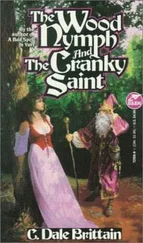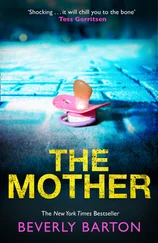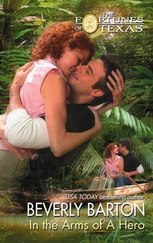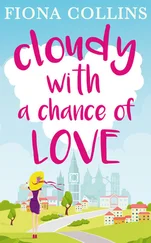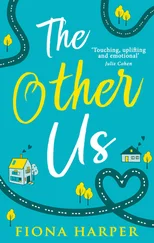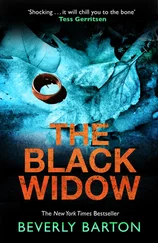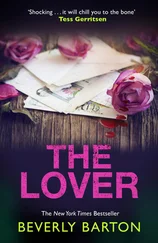“Hello, Dawn,” she said. “Thank you so much for agreeing to talk to me. I know how hard it must be for you, but we hope it will help the police find Bella.”
Dawn nodded as if in slow motion.
Bloody hell, Bob wasn’t kidding , Kate thought.
She picked up a red Teletubbies doll from the sofa. “Is this Po? My boys preferred Power Rangers ,” she said.
Dawn looked at her, interested. “Bella loves Po,” she said. “She likes blowing bubbles, chases after them, trying to catch them.”
Kate had noticed a photo of the toddler doing exactly that on a table and got up to bring it to Dawn.
“Here she is,” she said, and Dawn took the frame in her hands. “She’s a beautiful little girl,” Kate said. “Full of mischief, I bet.”
Dawn smiled gratefully. The two women had found their common ground—motherhood—and Dawn started to talk about her baby.
First time she’s been able to talk about Bella as a child, not a crime victim , Bob Sparkes thought.
“Kate’s good. You have to give her that. She can get inside your head quicker than a lot of my coppers,” he told his wife later. Eileen had shrugged and returned to the Telegraph crossword. Police work took place on a different planet, as far as she was concerned.
Kate had fetched more photos and toys to keep the conversation flowing, letting Dawn tell her story about each item with barely a question needed. She used a discreet tape recorder, slipped quickly onto the cushion between them, to capture every word. Notebooks were a bad idea in a situation like this—it would be too much like a police interview. She just wanted Dawn to talk. She wanted to hear about the ordinary pleasures and everyday struggles of being a mum. Of getting Bella ready for nursery school, bath-time games, the child’s delight at choosing her new wellies.
“She loves animals. We went to the zoo once, and she wanted to stay watching the monkeys. She laughed and laughed,” Dawn told her, taking temporary shelter in memories of a previous life.
The glimpses of Bella and Dawn would bring the reader straight into the nightmare the young mother was enduring, Kate knew, writing the intro in her head.
A pair of tiny red Wellington boots stand in Dawn Elliott’s hallway. Her daughter, Bella, chose them two weeks ago and has yet to wear them . . .
This was what the public wanted to read so they could shiver in their dressing gowns over tea and toast and say to their spouse, “This could have been us.”
And the editor would love it. “Perfect womb trembler,” he’d say, and clear the front and a spread inside the paper for her story.
After twenty minutes, Dawn began to tire. The drugs were beginning to wear off, and the terror crept back into the room. Kate glanced at Mick, and he stood up with his camera and said gently: “Let’s take a photo of you, Dawn, with that lovely picture of Bella blowing bubbles.”
She complied, like a child herself.
“I’ll never forgive myself,” she whispered as Mick’s shutter clicked. “I shouldn’t have let her go outside. But I was just trying to get her tea ready. She was out of sight for only a minute. I’d do anything to turn the clock back.”
And then she cried, dry sobs shaking her frame as Kate held her hand tightly and the rest of the world came back into focus around the sofa.
Kate always marveled at the power of interview. “When you’re talking to real people—people without an ego or something to sell—it can be complete exposure of one person to another, an intense intimacy that excludes everyone and everything else,” she’d told someone once. Who was it? Must’ve been someone she was trying to impress, but she remembered every line of every interview that touched her like this.
“You’ve been so brave, Dawn,” she said, squeezing her hand again. “Thank you very much for talking to me and giving me so much time. I’ll contact Inspector Sparkes to let him know when the story will appear. And I’ll leave my card so you can get in touch whenever you want.”
Kate tidied up her things quickly, sliding the recorder into her bag and relinquishing her place beside Dawn to the family liaison officer.
Sparkes took her and Mick to the door.
“That was great. Thanks, Bob,” she said in his ear. “I’ll call you later when I’ve written it.” He nodded as she brushed past and out of the house to face her furious colleagues.
In the car, she sat for a moment, running through the quotes in her head and trying to assemble the story. The intensity of the encounter had left her drained and, if she was honest, a little shaky. She wished she still smoked but rang Steve’s number instead. It went straight to voice mail—he’d be on the wards, doing his surgical rounds—but she left a message. “It went really well,” she told him. “Poor, poor girl. She’ll never get over this. I’ve lifted a lasagna out of the freezer for tonight. Speak to you later.”
She could hear the catch in her voice as it recorded.
“For goodness’ sake, pull yourself together, Kate; it’s work,” she told herself as she started the engine and pulled away to find a quiet car park and start writing. “Must be getting old and feeble.”
• • •
Dawn Elliott began ringing Kate Waters the next day, the day the story appeared. She rang from her mobile, standing in the bathroom away from the ever-attentive Sue Blackman. She wasn’t sure why she was making it a secret, but she needed something just for herself. Her whole life was being unpicked by the police, and she wanted to have something normal. Just a chat.
Kate was thrilled—a direct line to the mother was the prize she’d allowed herself to hope for but didn’t take for granted, and she cultivated it carefully. There were to be no direct questions about the investigation, no prying, no pressing. No scaring her off. Instead, she talked to Dawn as if she were a friend, sharing details of her own life—her boys, traffic jams, new clothes, and celebrity gossip. And Dawn responded as Kate knew she would eventually, confiding her fears and the latest police leads.
“They’ve had a call from abroad. Near Malaga? Someone on holiday there has seen a little girl in a park they think is Bella,” she told Kate. “Do you think she could be there?”
Kate murmured reassurance while noting everything down and texting the crime correspondent, a hard-drinking hack who’d had a couple of bad misses lately. He was grateful to be included in Kate’s exclusive tips, putting in calls to a contact in the incident room and telling the news editor to book a flight to Spain, pronto.
Not Bella. But the paper got an emotional interview with holidaymakers and a perfect excuse for another spread of photographs.
“Well worth a go,” the editor had said to the news desk, adding as he passed Kate’s chair: “Well done, Kate. You’re doing a great job on this.”
She had the inside track on the investigation, but she had to be careful. If Bob Sparkes found out about the secret phone calls, it would not be pretty.
She liked Sparkes. They’d helped each other out on a couple of the cases he’d run—he’d given her the odd bit of information to make her story stand out from the rest of the pack’s, and she’d tipped him off when she got something new that might be interesting. It was a sort of friendship, she thought, useful for both of them. And they got on well. But there was nothing deeper. She almost blushed when she remembered she’d developed a bit of schoolgirl crush on him when they first met, in the nineties. She’d been drawn to his quietness and brown eyes and had been flattered when he’d singled her out for a drink a couple of times.
The crime man at her last paper had teased her about her cozy relationship with Sparkes, but they both knew the detective was not a womanizer like some of his colleagues. He was renowned for never straying, and Kate didn’t have the time or the inclination for extramaritals.
Читать дальше

